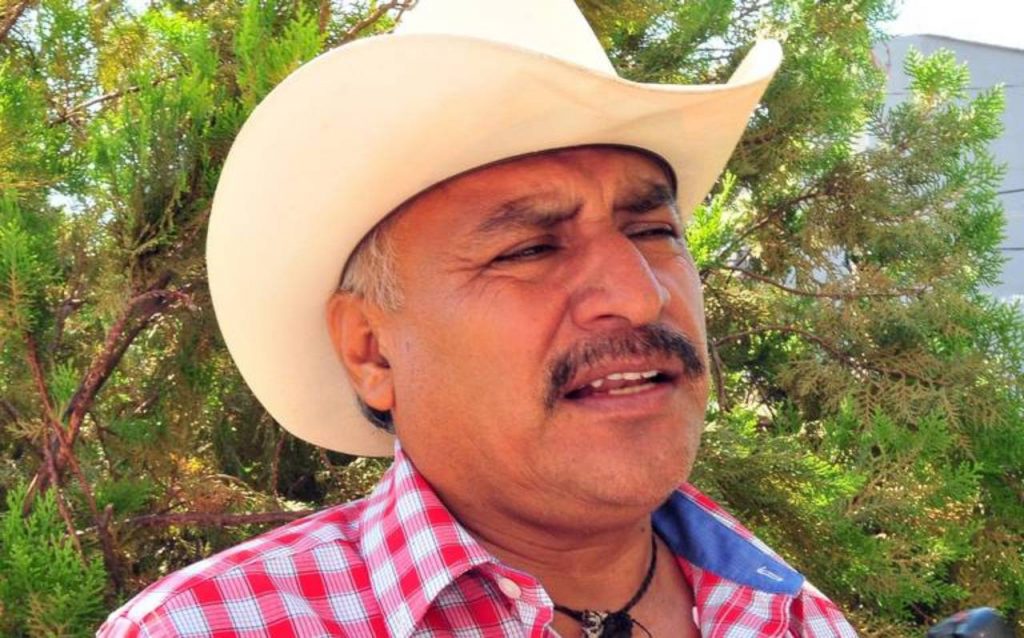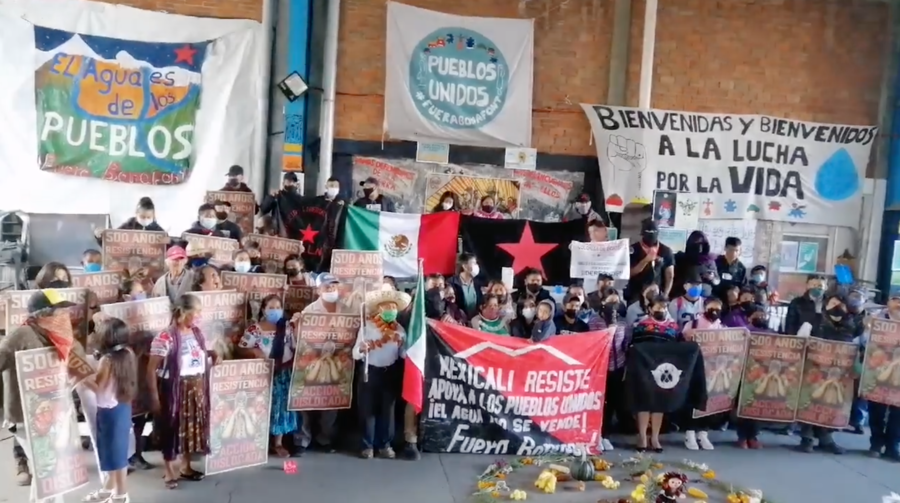by Raúl Romero
In Sonora, in the territory of the Yaqui tribe, different communities have been resisting the dispossession of their river for centuries. In 2010, with the construction of the Independencia aqueduct, which seeks to bring water from the Yaqui River to the city of Hermosillo, the resistance was rekindled. The Yaqui people have used all the resources at their disposal to defend their water. With appeals, mobilizations, blockades, dialogues, forums and more, the tribe, and in particular the people of Loma de Bácum, have confronted governments of all parties, including those that today, both at the state and federal levels, continue with the imposition of the project. As in other regions of the country, the struggle for the defense of their territory has had painful outcomes: assassinations, disappearances, and political prisoners as well.

In Baja California, and more precisely in Mexicali, various social organizations joined forces to wage an intense battle against the U.S. brewery Constellation Brands, which was planning to establish itself in the territory even though it was aware of the serious water problems in the region. Although the Cachanilla people succeeded in removing the brewery in 2020, the federal government offered to work on its relocation. Several state governments raised their hands, and so far Veracruz is the one that has made the most progress in the offer.
In September 2020, at the height of the pandemic, a large group of farmers in the state of Chihuahua engaged in fierce clashes with state police and the National Guard in protest against water shortages. One of the high points of the mobilizations was when they took over the La Boquilla dam and stopped the water that Mexico has been delivering to the United States since 1944. In response to the conflict, the protesters were met with disqualifications, repression and also the death of two of their members.
In Mexico City, the towns of Pedregales de Coyoacán, Xochimilco and Magdalena Contreras are also fighting important battles in defense of their springs, lakes and rivers, respectively, against real estate projects, road expansion and private entertainment centers.
In the state of Puebla, the people of Cholulco and the volcanoes are confronting the transnational Danone and its subsidiary Bonafont, which has plundered the water of the municipality of Juan C. Bonilla for more than 30 years. In their struggle, they occupied the company’s branch office and built the Altepelmencalli or House of the Peoples, a community center and point of dialogue with other struggles in the country and the world. In just 11 months, Altepelmencalli managed to get the river which was over-exploited by Bonafont to return to its course and reduce the water shortage problems in the region. However, last February 15, the National Guard went to the site to violently evict the people and return the plant to the transnational company.

In Chiapas, Coca-Cola extracts millions of liters of water. In Yucatan, pig farms contaminate cenotes and other fresh water sources. In different parts of the country, towns and social organizations denounce the excessive use of water by mining companies, or the contamination of rivers by some companies that turn them into toxic waste dumps.
The struggles for water, not always so visible, are gradually spreading throughout the country. The situation is alarming. According to data published by Angélica Enciso in these same pages (https://bit.ly/36krIDy), Mexico is the leading consumer of bottled water in the world: an average of 274 liters per inhabitant per year. Eighty percent of this business is concentrated in Coca-Cola (Ciel), Danone (Bonafont) and Pepsico (E-pura), which, after extracting and bottling the water, sell it 494 times more expensively.
According to research by Wilfrido Gómez and Andrea Moctezuma (https://bit.ly/3J7XfHc), there is a group known as the water millionaires, which concentrates enormous volumes of water concessions, and from which they generate a large economic profit. The group includes 966 electric power companies, breweries, steel mills, agribusiness, mining, paper, automotive and bottling companies; 1,537 individuals and 801 civil associations that own concessions. Among the water millionaires are the transnational Kimberly-Clark, the mining company Peñasquito (Goldcorp), Grupo Femsa and Enerall (founded by Alfonso Romo), among others.
In the struggle for the defense of water, peoples and organizations confront transnationals, multinationals and also the Mexican State, which defends private interests over the common good. The water crisis is the most penetrating, acute and invisible facet of the ecological devastation of the Earth, writes Vandana Shiva in The Water Wars. It is time to put a stop to the plunderers.
* Sociologist
This article was originally published in La Jornada on March 13, 2022. https://www.jornada.com.mx/2022/03/13/opinion/014a2pol English translation published by Schools for Chiapas.
